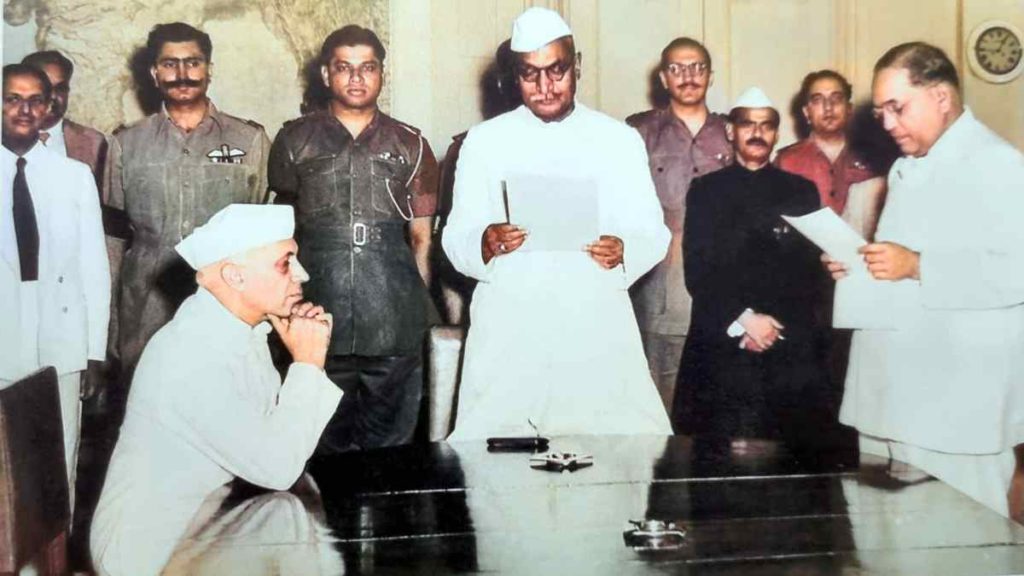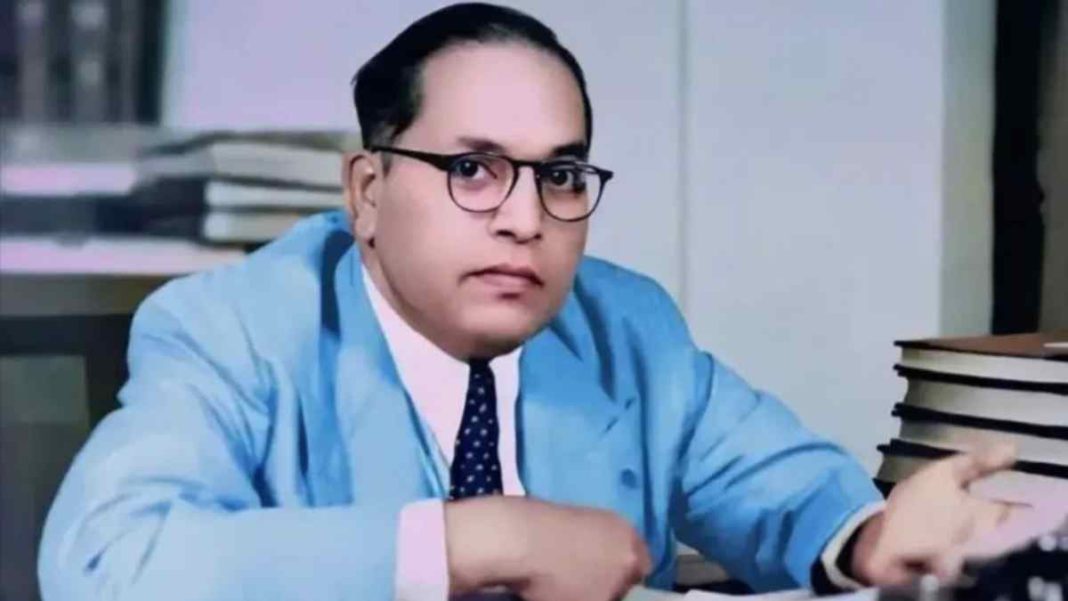INDIA: April 14 marks the 132nd birth anniversary of one of India’s most influential leaders and social reformers, Dr Babasaheb Ambedkar. Born on April 14, 1891, in a small village called Mhow in Madhya Pradesh, Dr Ambedkar’s life was a remarkable journey of resilience, determination, and unwavering commitment to social justice and equality.
Dr Ambedkar’s early life was marked by discrimination and caste-based oppression. As a member of the Dalit community, also known as “untouchables,” he faced discrimination at every stage of his life. However, his unwavering faith in education became his tool to fight against the social injustice that plagued the society he lived in. He pursued higher education in the United States and the United Kingdom, becoming the first person from the untouchable community to obtain a doctorate in economics from the London School of Economics.
On his birth anniversary, it is imperative to reflect on Dr Ambedkar’s contributions and remember his tireless efforts to create a just and equitable society. It is a time to pay homage to his unwavering commitment to the principles of equality, social justice, and human rights.
The architect of India’s constitution
Dr Ambedkar’s journey as a constitutional expert and a champion of social justice began long before he took on the role of drafting the Constitution. As a scholar and activist, he had a deep understanding of the socio-political issues that plagued Indian society, particularly the issues of caste discrimination, untouchability, and social inequality.
His experiences as a member of the marginalized Dalit community fueled his resolve to create a Constitution that would ensure the fundamental rights and dignity of all citizens, regardless of caste, creed, or gender. One of the key contributions of Dr Ambedkar to the Constitution was the inclusion of fundamental rights.

He ensured that the Constitution enshrined fundamental rights such as the right to equality, right to freedom of speech and expression, right to religion, right to education, and right to constitutional remedies.
These fundamental rights guarantee the protection of individual liberties and ensure that every citizen is treated with dignity and respect. Dr Ambedkar believed that fundamental rights were the cornerstone of a democratic and inclusive society and played a vital role in safeguarding the rights of marginalized communities.
Contributions to the economics of India
Dr Ambedkar’s expertise in economics also influenced the economic policies and provisions in the Constitution. He advocated for economic policies that aimed at eradicating poverty, promoting economic equality, and ensuring the welfare of all citizens. He conducted pioneering research on various economic issues, such as agricultural economics, industrialization, labour, and monetary policy.


Dr Ambedkar’s seminal work on the problem of the rupee and the currency system in British India, known as the “Ambedkar Plan,” was widely recognized for its economic insights and policy recommendations. He also advocated for land reforms and the economic empowerment of the marginalized as crucial components of social justice. His economic acumen and innovative ideas continue to be relevant in modern India.
A champion of women’s rights
Dr Babasaheb Ambedkar was a staunch advocate of gender equality and women’s rights, which was ahead of his time. He firmly believed that the empowerment of women was crucial for the progress of society. He fought against gender discrimination and advocated for the rights of women in various spheres of life, including education, employment, and property rights.
Dr Ambedkar played a pivotal role in the inclusion of provisions for gender equality in the Indian Constitution, such as the right to vote, equal pay for equal work, and the prohibition of child marriage. His efforts laid the foundation for gender equality in India and continue to inspire generations of feminists.
Immense contributions to education
Dr Ambedkar believed that education should be accessible to all, regardless of caste, creed, gender, or socio-economic background. His efforts laid the foundation for the Right to Education (RTE) Act in independent India, which ensures free and compulsory education for children from marginalized communities.
He realized the importance of creating educational institutions that catered to the needs of marginalized communities. He established several educational institutions, including the Bahishkrit Hitakarini Sabha in 1924, which aimed to promote education and socio-economic empowerment of the untouchable castes.
He also founded the People’s Education Society in 1945, which focused on providing quality education to all, irrespective of caste or creed. These institutions continue to play a crucial role in providing education and empowering marginalized communities in India.
He advocated for the inclusion of provisions for scholarships and educational assistance for marginalized communities in government policies and programs. Numerous scholarships and financial aid schemes for students from marginalized communities bear testimony to Dr Ambedkar’s vision of making education accessible to all.
Debunking the myth of Aryan Invasion Theory (AIT)
In his scholarly work, “The Problem of the Rupee: Its Origin and Its Solution” (1923), Dr Ambedkar expressed his scepticism about the Aryan Invasion Theory (AIT), which was a popular theory among Western scholars in the 19th and early 20th centuries.
The AIT proposed that a group of fair-skinned, nomadic people called “Aryans” invaded the Indian subcontinent around 1500 BCE, subjugating the indigenous Dravidian people and establishing the caste system. However, Dr Ambedkar questioned this theory on several grounds:
- Lack of concrete evidence: Dr Ambedkar argued that there was no concrete archaeological, anthropological, or textual evidence to support the Aryan Invasion Theory. He criticized the methodology and biases of Western scholars who proposed this theory, noting that it was based on speculative interpretations and racial prejudices.
- The historical continuity of Indian culture: Dr Ambedkar emphasized the historical continuity of Indian culture, religion, and civilization, which he believed predated the hypothetical Aryan invasion. He argued that Indian society was complex and diverse, with a long history of social, economic, and cultural interactions between various groups, and that it was not simply the result of an external invasion.
In summary, Dr Ambedkar’s contributions to India’s growth are immense. His seminal works on formulating the Indian Constitution, economics, history, linguistics, and social and political reforms speak volumes about the man known as “Dr Babasaheb Ambedkar”, referred to respectfully as “Jai Bhim”.
Also Read: Remembering Dr B R Ambedkar on His 132nd Birth Anniversary



